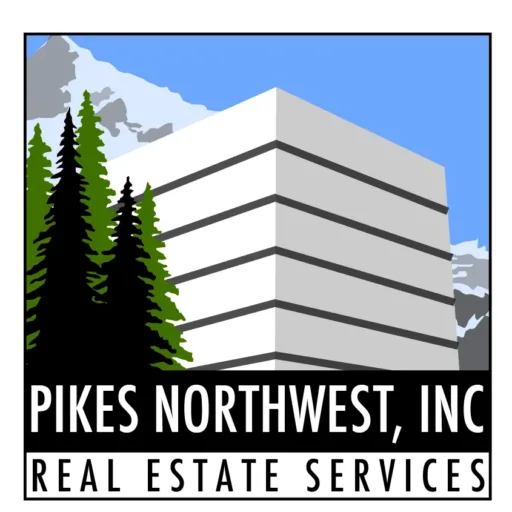As you can imagine, there are hundreds of factors that influence a property’s value – from location, condition, current market strength, age, construction type, size, use, and on and on. But one of the biggest and perhaps most important factors that influences the value for commercial property is the cashflow it generates – which of course is linked directly to a property’s vacancy rate, i.e. occupancy by tenants.
Think of arriving at a property’s value like this: Tenants = Cash = Value. Running this concept out, you can make a fairly safe assumption that the better quality of tenants you have, the more cashflow your property will generate, the more valuable your property.
Even as simple as that notion seems, I see far too many commercial property owners leaving money on the table. We routinely witness owners making unnecessary mistakes that restrict cashflow and ultimately, value. The majority of the time, these outcomes are avoidable. Owners often end up making decisions that are short-sighted and almost always predicated on a minor cash outlay vs. strategic, long-term thinking about their decision’s impact on the value.
If you would rather avoid such nonsense and keep your property at maximum occupancy and generating maximum cashflow, simply focus on what keeps tenants happy and staying in your property.
Here Are FOUR BIG FACTORS That Keep Tenants Happy And Staying In Your Property:
You see, tenants’ needs are fairly simple when it comes right down to it…
- They want HVAC (heating, ventilation and air condition) that works when they need it. In the heat of the summer, there should be cold air blowing and in the dead of winter, warm air. Simple, right?
- They want janitorial that’s done regularly and passes the White Glove Test (Seriously! I use this test myself when I visit our managed properties. There’s not a Class A building owner on this planet that is happy with dust on top of a thermostat or alarm console or windowsill.). No smudges on windows, no trash or gum on the sidewalks. No grimy film on the building. Sparkling clean restrooms and common areas are a given.
- They want parking and lots of it. Customers feed businesses. Abundant parking is at a premium. Parking lots that are well lit (Remember, it’s dark a lot in Oregon in the winter and well-lit parking adds to security!), not full of potholes, paint-striped to delineate parking spots, cracks filled and regularly seal-coated are minimum qualifications. No owner wants a trip and fall in their lot.
- They want service when they call to get it. When a tenant has their business profits at stake, a broken water line, a leaky roof, malfunctioning HVAC, whatever – can stall out and potentially harm their business. They want (and deserve) a fast, courteous and efficient response from the owner or property manager.
The fastest way to lose a commercial tenant is to ignore concerns raised about your property – problems that arise especially from those in the four areas above. I mean, really, can you blame them? Look at it like this: You and I get paid to solve problems. If there’s a problem with your building, solving it for your tenant (whether you solve it, or your property manager solves it) keeps them paying and staying in your property!
Quick story: Here’s how ignoring these four areas usually works out… I know a commercial property owner, self-managing his property, that recently lost a big tenant in his Class A property over a $10,000 supplementary HVAC unit. Understand that $10,000 deployed at the right time would have solved the problem. Instead, the owner didn’t act quickly and decisively. In fact, as summer heated up, he continued to ignore the tenant’s reasonable requests. As a result, at lease renewal time later that same year, the tenant didn’t pick up their ten-year option and left for a competing, professionally managed property.
Here’s how bad that will hurt: That tenant’s monthly lease was $7,500. Renewing for another 10 years with annual CPI increases (up to roughly 3% depending on where you are at in the US) would have generated a MINIMUM of $900,000 in rental income. Instead, not only is $900k GONE, so is the nationally rated tenant.
His building was worth about $3.5MM. This tenant was making his full principal and interest payment. And, since the owner wouldn’t budge and install a new HVAC system, the property’s value has dropped because of the new vacancy! How much it’s dropped is anyone’s guess without an analysis, but it could be as much as $250,000 – maybe more! In general, a partially or fully vacant commercial building is not worth nearly as much as a fully occupied property with happy tenants.
(NOW YOU KNOW: When a commercial building is for sale and in need of tenants and a broker wants to get more for the property than it’s worth “as-is, where-is” – it’s typically advertised and positioned as a “Great Owner/User Opportunity” Which, by the way, can be an opportunity for you, as an investor, to get a property at a price below what it would take to build it!)
Sure, the building owner can land a new tenant but who knows how long that will take or the amount in TIs (tenant improvements) or rent abatement he’ll need to concede. Every month it’s vacant, the owner’s springing for the payment. A simple ten-thousand-dollar investment into HVAC cost this building owner big time. In fact, if the property sits vacant for about 13 months, the owner will be out $100,000. Over a measly $10k HVAC.
| Are You a Commercial Property Owner? Request Your FREE, No-Obligation 27-Point Executive Property Analysis, Today! Find out if a professional property manager can help you solidify the value of your property and cash flow! Call Jerry today: 503-588-3586 Or, click here. |
Sure, vacancy rates are low right now here in the Salem area, so that building owner’s prospects for a replacement tenant are probably sound. But what if we were battling back from 2008 again? His building might sit vacant for 2, 3 or 4 years!
This is where a great commercial property management strategy, with a tenant retention plan and budgeting, come into play. Ultimately the tenant would likely stay. And, having a budget in place makes reserving for/setting aside for HVAC repairs and replacements like this, easy for an owner.
Class A owners will tell you: Great commercial property management strategy isn’t a cost; it’s a benefit and value-add to your property. It’s adding both a layer of insulation and insurance to hedge against potential tenant loss when you’ve got someone on your team to handle HVAC, Janitorial, Parking and Service! And, when you look at the value of just a single tenant to an investment property, can you really afford not to have someone watching your back? Just remember: A successful property ownership and value-enhancement strategy hinges around getting and retaining great tenants!

 My name is Alyssa Flores. I was raised here in Salem, Oregon. I’ve been working in property management for the past 6 years, and am excited to be part of the Pikes Northwest team. In my spare time I enjoy being with my family and friends.
My name is Alyssa Flores. I was raised here in Salem, Oregon. I’ve been working in property management for the past 6 years, and am excited to be part of the Pikes Northwest team. In my spare time I enjoy being with my family and friends. My experience in property management spans 15 plus years including selling homes in Southern CA. I relocated back to the NW after 20 plus years and I’m really enjoying the beauty of the seasons! I’m excited to add more Commercial Property Management experience to my skill set!
My experience in property management spans 15 plus years including selling homes in Southern CA. I relocated back to the NW after 20 plus years and I’m really enjoying the beauty of the seasons! I’m excited to add more Commercial Property Management experience to my skill set!